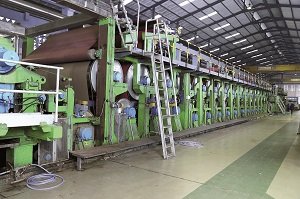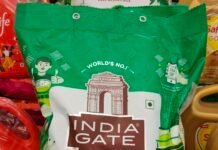In January 2015, MeadWestvaco (MWV), one of the largest container board and packaging manufacturers, with presence in over 30 nations worldwide, and revenues of US$ 5.6 billion agreed to merge with Rock-Tenn, the second-largest producer of paper board and packaging solutions in North America, with revenues of US$ 10 billion. The merger of these two Fortune 500 companies according to Bloomberg would increase the global footprint of Rock-Tenn and improve its cash reserves while expanding the product portfolio of MWV significantly.
Packaging South Asia spoke to Lon Rollinson, president, MWV India Paper Board Packaging that has a business presence in India since the last 25 years. “We are excited about the many opportunities that will be possible when MWV and Rock-Tenn merge sometime in the second quarter. Until that time, we are operating as two separate companies and don’t have any comment at this point about our combined capabilities — including any impact on our business in India,” says Rollinson.
Acquisition of box making unit
While MWV began its business dealings in India during the early 90s, they started investing in building domestic production capacities in 2011, when they acquired a box making plant at Pune. “We fully acquired a box making plant in Pune to introduce high quality humidity resistant corrugated packaging solutions to the fruits, vegetables, FMCG, consumer durables, automotive and engineering goods segments in India,” says Rollinson.
MWV’s paper operations in India produce between 175,000 and 200,000 metric tonnes of FSC certified recycled fiber-based corrugating papers ranging from 115 gsm to 440 gsm. “The India box making operations convert around 8,000 to 10,000 metric tonnes of material each year,” says Rollinson.
“The paperboard packaging business provides high quality corrugated packaging solutions that are best positioned to address our customers’ needs for quality, consistency, and productivity. It also reduces their total costs of ownership by preserving the desired performance of their products through the supply chain. Our focus in India is to grow our packaging operations in the secondary and tertiary packaging segment as well as grow in the container board segment. Apart from this we are looking to expand speciality packaging with coated and non-coated paper,” adds Rollinson. MWV confirmed that they have no security packaging operations in India currently.
Expansion of paper plant
MWV says that the raw material supply for its corrugated box plant for secondary packaging is exclusively from India. However, MWV imports some of its high performance coated unbleached and bleached products into India where consistent performance is critical to converting operations and brand owners. These are primarily for special packaging like the material used to make tetra packs for liquid and milk products. For the corrugated packaging industry, MWV is developing new high performance grades that displace the imported papers currently used by box manufacturers where domestic alternatives are not available.
In 2012 MWV invested in Ruby Macons, one of India’s largest suppliers of paper to the corrugated box making industry with an installed capacity of 150,000 tonnes annually. The revenue of Ruby Macons at the time of acquisition was US$ 80 million (approx `4,000 crores) as reported by the financial press with 20% yearon-year growth.

“Prior to the acquisition of Ruby Macons in 2012, MWV provided premium paperboard packaging products to customers across South Asia in liquid packaging, tobacco, and carton board,” says Rollinson. The acquired paper mills operating since 1989 were one of the biggest in India and had three paper machines, two in Vapi and one in a nearby town Morai also in the south of Gujarat. “After the acquisition, MWV increased the capacity of the Morai plant in the year 2013 adding another paper machine that will eventually increase the plant capacity by 500 tonnes a day,” says Rollinson. “We are producing around 150 to 200 tonnes every day on our new paper machine but will scale up production significantly as we continue our strategic growth investments at Morai.”
Rollinson appeared fairly positive in building further investments in India. “With our investments and with our current and planned product offerings, we are very well positioned to be the most valued partner to our customers across India and the region,” says Rollinson. “We recently approved a project that will enable additional growth and will support the development of new substrates for corrugated packaging.” When asked about further investments in India, Rollinson confirmed that they were upbeat about the situation but cannot disclose details of future investment plans. “The key challenge to doing business here is India’s unique supply chain and the range of opportunities and the challenges it represents would top the list,” says Rollinson.











